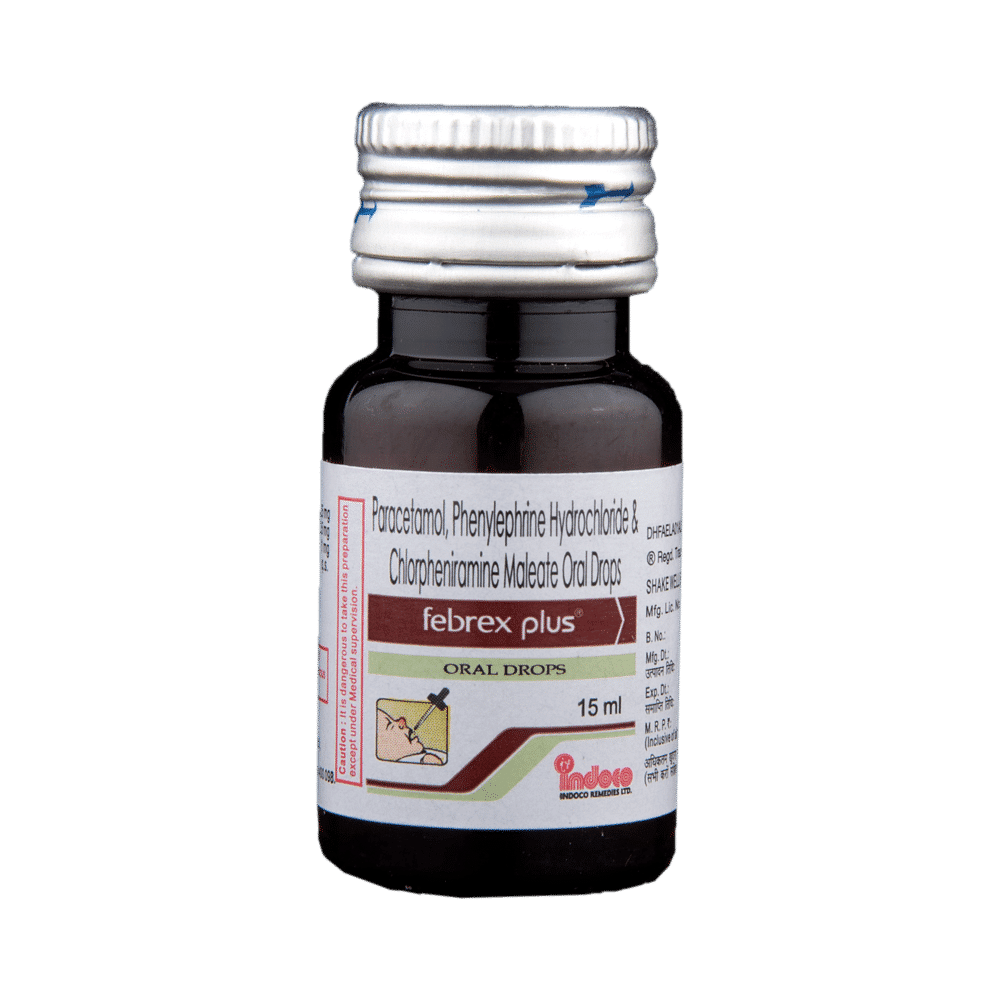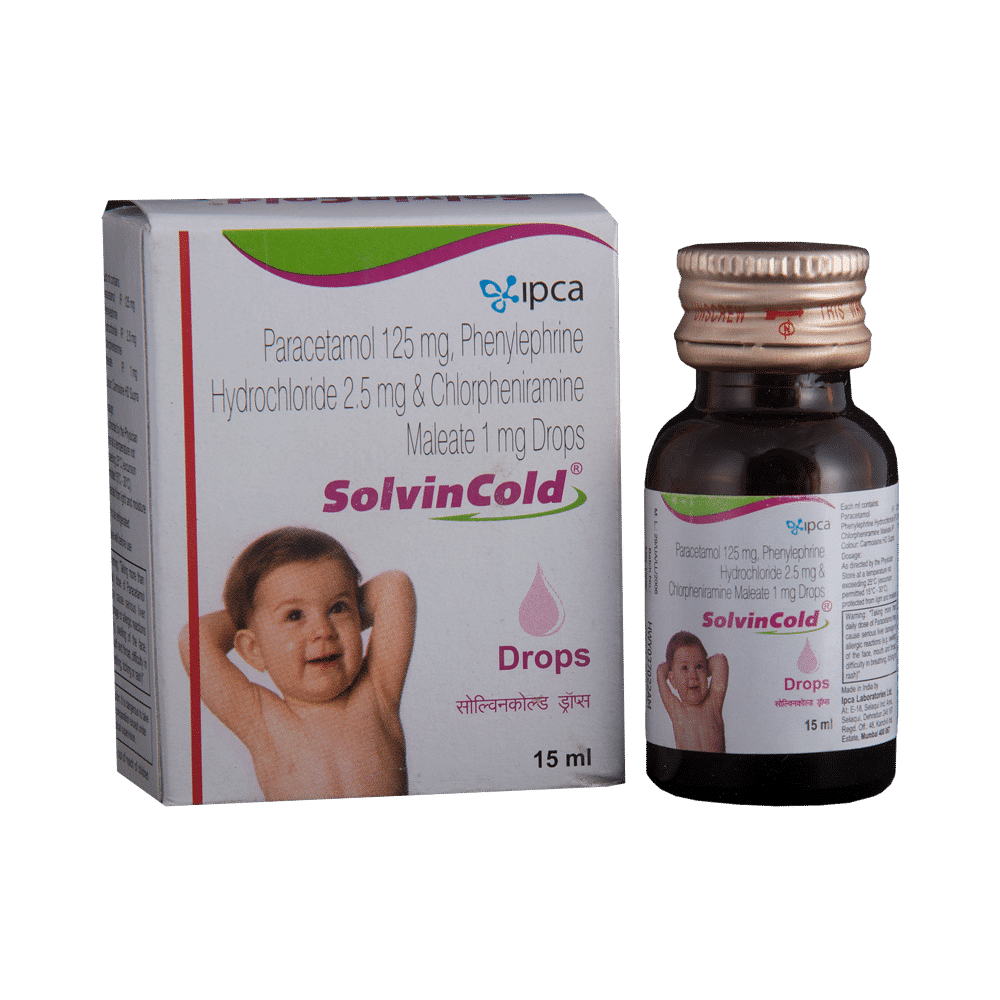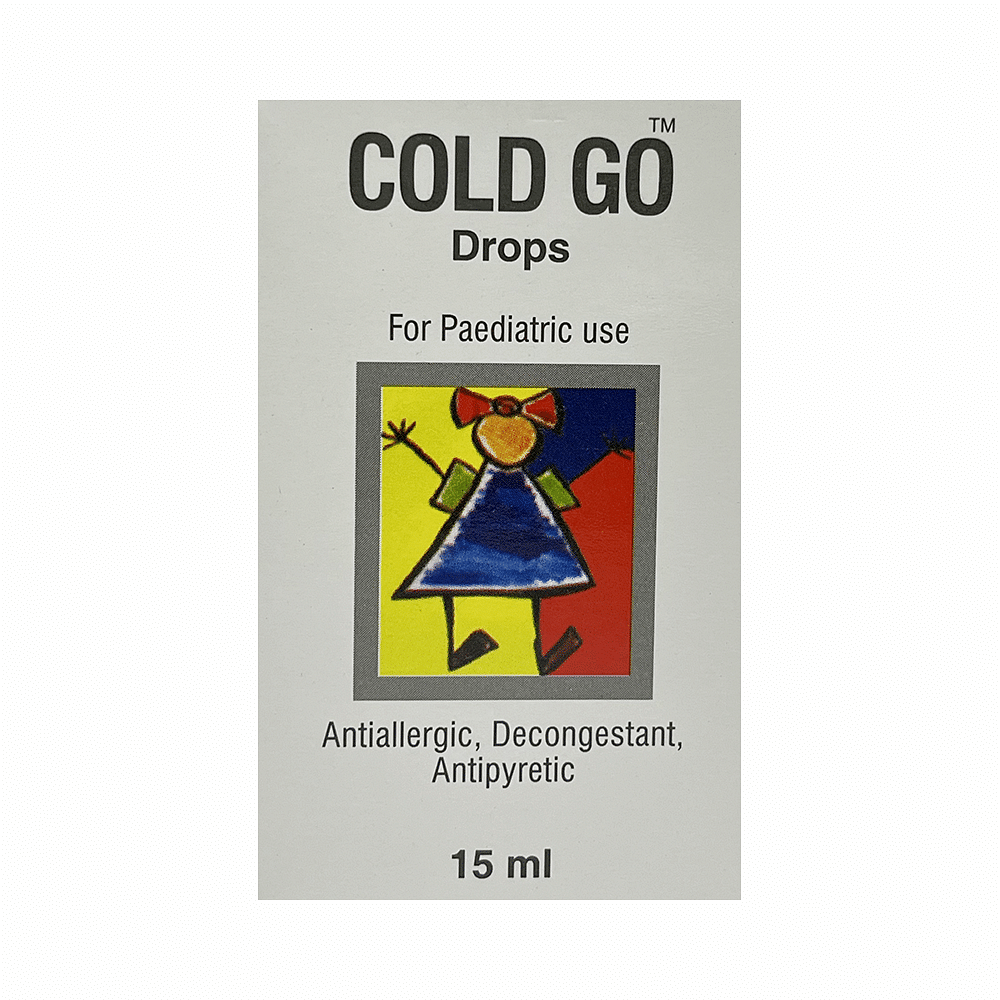
Coryna Drop
Manufacturer
Agron Remedies Pvt Ltd
Salt Composition
Chlorpheniramine Maleate (1mg) + Paracetamol (25mg) + Phenylephrine (2.5mg)
Key Information
Short Description
Coryna Drop is a medication used to treat common cold symptoms in children, such as sore throat, runny nose, cough, sneezing, watery eyes, body ache, and fever.
Dosage Form
Drop
Introduction
Coryna Drop is a combination of three medicines: Chlorpheniramine, paracetamol, and phenylephrine. It is commonly prescribed in children to relieve common cold symptoms. Chlorpheniramine is an antiallergic that relieves allergy symptoms like runny nose, watery eyes, and sneezing. Paracetamol is an analgesic (pain reliever) and antipyretic (fever reducer). Phenylephrine is a nasal decongestant that narrows the small blood vessels providing relief from congestion or stuffiness in the nose.
Directions for Use
Coryna Drop is a medication that should be used as directed by a doctor. It is important to follow the dosage instructions carefully and not to exceed the recommended dose.
Safety Information
Side Effects
No common side effects listed.
How it works
Coryna Drop is a combination of three medicines: Chlorpheniramine, paracetamol, and phenylephrine. Chlorpheniramine is an antiallergic that relieves allergy symptoms like runny nose, watery eyes, and sneezing. Paracetamol is an analgesic (pain reliever) and antipyretic (fever reducer). Phenylephrine is a nasal decongestant that narrows the small blood vessels providing relief from congestion or stuffiness in the nose.
Quick Tips
Ensure your child takes extra care when taking part in physical activities Never combine Coryna Drop with other cold and flu medicines Stop Coryna Drop and immediately report to the doctor if your child develops an itchy rash, facial swelling, or breathing difficulties Practice self-care tips: clean and disinfect surfaces after sneezing and coughing, give your child plenty of fluids, restrain your child from having dairy products, coffee, and foods that are spicy and fried, make your child gargle with warm saltwater, and ensure your child takes enough rest
Related Medicines

Febrex Plus Oral Drop

Solvin Cold Drop

Fibcold Drop

Tricold Plus Oral Drops

Tacof P Drop

Belrin-D Drop

Rinojel P Drop

Flucold P Oral Drops

Comak Drop

Cold-GO Drop
Frequently asked questions
What if I give too much Coryna Drop by mistake?
Prolonged or excessive intake of Coryna Drop can increase the risk of serious side effects, including seizures, rapid heart rate, depression, cognitive defects, and difficulty concentrating. Always adhere to the prescribed dose. To accurately measure the dose, use the calibrated cup provided by the manufacturer. Do not use a kitchen teaspoon, as it may not provide an accurate estimate.
How can I store Coryna Drop?
Coryna Drop should be stored at room temperature, in a dry place, away from direct heat and light. Additionally, keep all medications out of the reach and sight of children to prevent accidental intake.
My child has a cough and fever. Can I give him two medicines together?
Do not give your child more than one cough or cold medicine at a time unless advised by a doctor. This is because both medicines may contain the same ingredients, which could lead to an overdose and serious implications. Always consult your child's doctor before giving any medication to your child.
Can I give my cough medicine to my child?
Never give your child medicines intended for adults. Children should only receive medications specifically formulated for them, as using adult medications can cause unwanted side effects. Always check the label before using the medicine in your child. If the symptoms persist or worsen, it is best to consult your child's doctor.
Can Coryna Drop make my child sleepy?
Coryna Drop may cause mild drowsiness, making your child feel sleepy. However, it is essential to avoid using this medicine to induce sleep, as it may mask underlying sleep disorders such as insomnia. Always consult your child's doctor before giving this medicine to your child.


